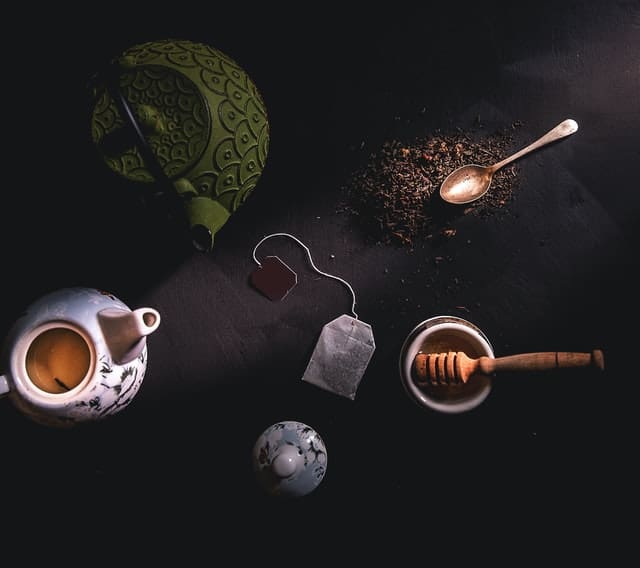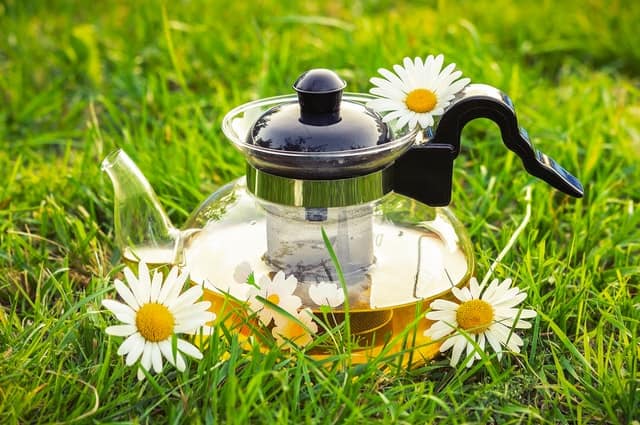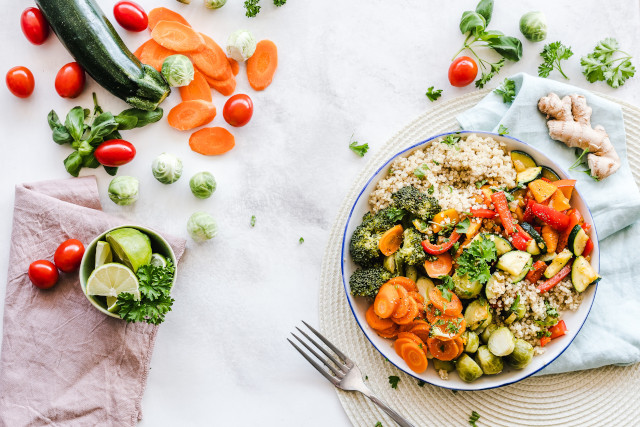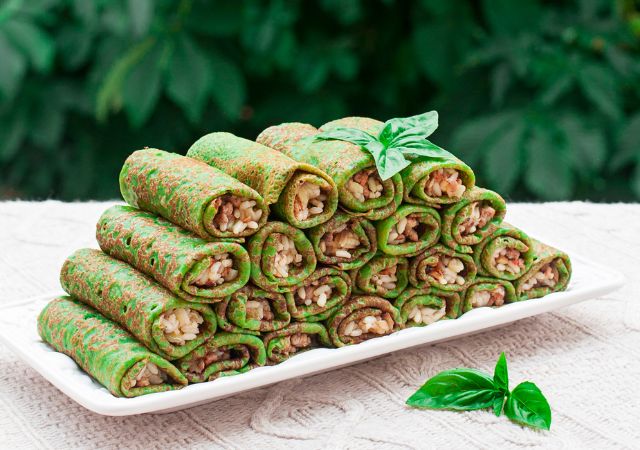
Whether it be a casual Sunday afternoon, a family gathering, or a cold winter night, a cup of tea will surely keep you company. Apart from its various types to choose from, teas are beneficial to your health, including people with diabetes.
Some of the highlighted health benefits include reducing inflammations, improve insulin sensitivity, and maintain healthy blood glucose levels. In this article, we’ll be spilling the tea on everything you need to know about tea and diabetes, including its impact on blood glucose levels, recommended types of tea to try for diabetics, and guidelines to safely enjoy every sip you drink.
Contents
Tea and managing diabetes
Teas are one of the world’s most popular beverages to date. With powerful plant compounds, teas have properties associated with helping people manage their diabetes. Now, as most of you are already aware, regularly monitoring your blood sugar levels is crucial. This is especially true when it comes to choosing what and how much you consume, including foods and beverages you take in on a daily basis.
One of the best ways to promote good diabetic management is by going for zero or low-calorie drinks such as tea instead of the temptation of sweetened beverages such as coffee or hot chocolate, for instance. Doing so helps mitigate the risks of elevating your blood glucose to spiking levels and can keep you well hydrated throughout your daily activities! Hydration is another crucial element to maintain healthy blood flow and other body functions, including blood glucose management.
In addition, drinking tea can also help minimize damages to your cells and decrease inflammations, which makes it no wonder why they make an excellent fit for people with diabetes.
Top types of teas to try for diabetics
While all types of tea have their benefits and health-friendly properties, some specific types may suit well for people with diabetes. You might have been wondering: “What might the best tea types be for one with diabetes?” Say no more. Here are some of the top 5 tea types you should consider adding to your diet.
Green Tea
Aside from health benefits mentioned on most teas, green teas have particular compounds such as epigallocatechin gallate or ECGC for short. ECGC helps stimulate glucose flow into your skeletal muscle cells, which in return aids in maintaining stable blood glucose levels.
Green tea is an excellent beverage for people with type 2 diabetes, one that causes blood glucose levels to increase due to the lack of ability to produce enough insulin. Research has shown that drinking green tea may aid in increasing insulin sensitivity, hence reducing blood glucose levels back to normal. Interestingly, by simply drinking green tea, studies have shown that it mitigates the risks of having type 2 diabetes.
Recommended intake: 3 to 4 cups per day.
Hibiscus Tea

Hibiscus tea, probably one of the most elegant-looking cups of tea, is infamously known as sour tea. As the name suggests, it is a light-colored tart tea that is made of extracted Hibiscus petals. Not only do Hibiscus petals look beautiful, but they are also enriched with polyphenol antioxidants such as organic acids and anthocyanins, giving them that gorgeously bright ruby color.
People with diabetes generally have relatively high blood pressure, and that’s when Hibiscus teas come in. Having Hibiscus tea aids in maintaining normal blood pressure, as well as minimizing insulin resistance.
Note: Please be advised that Hibiscus tea may interact with certain blood pressure medicinal drugs such as hydrochlorothiazide. If in doubt on whether Hibiscus is safe for you to drink, seek professional advice from your local doctor.
Recommended intake: 1-2 cups per day.
Black Tea
This is not your regular cup of tea. Black teas are well known for their powerful plant compounds, such as theaflavins and thearubigins, which are great antioxidants and work against inflammation and rise in blood glucose levels.
A study on rodents indicates that black tea is capable of disrupting the uptake of carbohydrates. It does this by suppressing specific enzymes, therefore potentially helping maintain healthy blood glucose levels. Another study on humans indicated that black tea was able to have significantly reduced blood glucose levels after consuming sucrose compared to those who took the placebo. While studies are continuously developing, there has been no study that explains the mechanism behind it.
Recommended intake: 3-4 cups per day.
Chamomile Tea

If you’re ever having trouble sleeping, then chamomile tea is just for you. Regardless of what reason it may be, a sleepless night is never a good thing, especially if you have diabetes. Lack of sleep has a high chance of lower effectiveness of insulin production. This could raise your blood glucose levels, something all diabetics must avoid.
Chamomile tea is naturally free of caffeine, which helps you fall asleep without the need for any of those sleeping pills. To add to that, drinking this cup of tea has been linked to better insulin sensitivity and glucose control. A study by Trends in General Practice indicated that people with type 2 diabetes who consumed chamomile tea thrice a day after meals had reduced insulin resistance and inflammations.
Recommended intake: 3 cups a day (after meals).
Turmeric Tea
Turmeric does give that zing as it is a spice mainly known for its enriched antioxidant and anti-inflammatory contents. Curcumin, found in turmeric, has been studied for its blood-glucose-reducing nature. Research suggests that curcumin has the ability to increase insulin sensitivity and glucose intake in tissues.
As a bonus, curcumin also has other health benefits, including protection against cell damage, reduced inflammation, and maintain healthy kidney function.
Recommended intake: 2 cups a day.
Remember, just like fingerprints, everyone’s condition is unique, which also means one may have different effects than the other. This is why it is essential to always consult with your local doctor to ensure drinking any of these tea types is safe to incorporate into your daily meal plan and diet.
Ginger Tea
Ginger tea, known for its spiciness and warmth, is another excellent option for people with diabetes. A research conducted by the Journal of Complementary and Integrative medicine concluded that participants who took ginger supplements had increased glycemic control significantly better than those who did not consume ginger.
Ginger is able to improve glycemic control by inhibiting enzymes that are associated explicitly with metabolizing carbs while also improving insulin sensitivity.
Recommended intake: No more than 4 grams of ginger per day.
Precautions to consider when drinking tea
Though there are various types of tea that can significantly aid in managing your diabetes, it is vital that you know how to safely and adequately drink tea without worrying about those fluctuating blood glucose levels.
Sweeteners
Adding sweeteners, whether natural or artificial, such as sugar or honey, may add some taste to your regular cup of tea is perfectly fine as long as you do it controllably and only occasionally to maintain stable blood glucose levels. However, having your tea unsweetened is one of the best ways to ensure you mitigate any chances of raising your blood glucose levels.
Some alternatives to adding sweeteners would be adding a squeeze of fresh lemons or a sprinkle of cinnamon to amp up your taste buds. Doing so also helps you manage a healthy weight and maintain stable blood pressure levels.
Pre-bottled tea
Should you choose to buy bottled teas, always double-check the list of ingredients and nutrition facts to avoid accidental intake of high sugar contents.
Interaction with certain medications
Some teas such as Hibiscus, aloe vera, prickly pear, rooibos, and fenugreek are some herbal teas that you may want to avoid as they may have interactions with medicines for diabetes. Whether if this is your first time drinking tea or your first time trying a new type of tea, it is always wise to consult with your local doctor on any benefits and risks associated between drinking that tea type and your current condition.
Concluding remarks
Aside from being a close second to coffee as a favorite drink, teas offer significant health benefits, especially for people with diabetes. With a relatively wide variety of tea types to choose from, some of the most recommendable and best teas to sip include green tea, black tea, Hibiscus tea, Tumeric tea, and ginger tea. These particular tea types are packed with antidiabetic and anti-inflammatory effects, making them great beverages for people with diabetes to enjoy with a peace of mind.
Drinking tea is one thing but knowing how to safely drink tea is an essential factor in healthy blood glucose regulation. This is especially true for people with diabetes, which is why opting for unsweetened tea (regardless of which type) is the best way to ensure you keep your blood glucose levels and your general health in check.
As always, before you try something new, may it be a new tea type or adding alternatives to sweeteners such as lemon or cinnamon, always seek professional advice from your healthcare provider. With that being said, we hope this article serves you well as a guide to knowing how teas can affect your blood glucose levels. Cheers!





